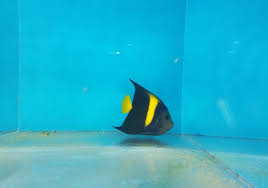Dragons in Chinese Folklore: Humor and Tales of Ancient Wisdom

In Chinese folklore, dragons are revered as symbols of power, prosperity, and good fortune. They are often depicted as benevolent, wise creatures who embody the balance of nature, from their control over water to their ability to bring rain for crops. However, dragons in Chinese stories are not always portrayed as solemn, majestic beings. In many of the traditional Chinese humorous tales and folk stories, dragons take on a more whimsical and comical role, offering lessons through their adventures, misadventures, and interactions with humans.
These dragons, often larger-than-life characters with magical powers, serve as more than just symbols of the divine; they are also instruments of humor, teaching valuable life lessons while making audiences laugh. The image of the dragon in these stories is multi-dimensional, blending wisdom and wit, strength and folly, making them both revered and relatable figures in Chinese culture.
The Role of Dragons in Chinese Folk Humor
The role of dragons in Chinese folklore often extends beyond their traditional associations with power and fearsome reputation. In the realm of humor, dragons frequently find themselves in awkward or funny situations, where their strength and wisdom are either put to the test or contrasted with human qualities like greed, vanity, or misunderstanding.
In one of the well-known humorous folk tales, a dragon is fooled by a clever peasant. The story goes that a poor farmer finds a dragon trapped in a net. The dragon begs for help, promising to grant the farmer a wish. The farmer, ever the opportunist, asks the dragon to transform into a gold ingot. The dragon, thinking it would outwit the peasant, transforms, only to find that the farmer rolls it up and hides it under his bed. Later, the farmer uses the gold to buy land, becoming rich, but still insists on keeping the dragon in its gold ingot form, refusing to release the creature. This tale is often interpreted as a humorous commentary on human greed and cunning, as the farmer exploits the dragon’s wish-giving power for personal gain.
The humorous nature of this story lies in the unexpected turn of events, as the dragon, usually a symbol of divine power, is rendered helpless by the very human traits it often seeks to challenge. The peasant’s greed is ultimately punished in a way that reflects the deeper wisdom embedded in Chinese folk humor: that wisdom and morality should guide one’s actions, not selfish desires.
A Trickster Dragon and the Moral Lessons
In Chinese culture, trickster figures are often central to comedic storytelling. Dragons, though traditionally powerful, sometimes take on the role of tricksters in folk tales. These dragons often find themselves entangled in situations where their inherent wisdom is either overlooked or challenged by clever human beings. One such story features a dragon and a scholar.
In the story, a scholar encounters a dragon who brags about his vast knowledge and wisdom. The dragon claims to be the smartest creature on Earth, capable of answering any question. The scholar, who is well-versed in both academic learning and streetwise tricks, decides to challenge the dragon. He asks the dragon a seemingly simple question: “What is the sound of a single hand clapping?”
The dragon, unable to comprehend the paradoxical question, falls into a deep thinking trance. He spends hours trying to figure out the answer but cannot. Meanwhile, the scholar simply laughs, saying, “You may be wise in many ways, but sometimes, wisdom is understanding that not all questions have answers.” The dragon, realizing the scholar’s wit, laughs along and admits that, sometimes, even the wisest must accept their limitations.
This story highlights the humor in the interaction between wisdom and folly. The dragon, usually portrayed as all-knowing, is bested not by brute force but by human cleverness and philosophical thought. The tale teaches a subtle lesson about humility, emphasizing that no matter how wise or powerful one may be, there is always something that one does not know.
Dragons in Chinese Short Stories: From Heroic to Humorous
Dragons also make frequent appearances in Chinese short stories that blend the heroic with the humorous. In one such tale, a dragon is summoned by a village to help with a series of natural disasters, such as flooding, crop failure, and drought. When the dragon arrives, the villagers, expecting grandeur, are instead surprised by the dragon’s behavior. The dragon is clumsy and easily distracted, spending more time making jokes than helping with the crisis.
For instance, when asked to control a flood, the dragon instead turns the river into a giant swimming pool, playing with the villagers like children. When asked to provide rain, the dragon accidentally makes it snow, causing even more chaos. While the villagers initially scold the dragon, they eventually come to appreciate its efforts, laughing at its bumbling nature. The story ends with the villagers learning to embrace the dragon’s playfulness and to find humor even in dire situations.
The story is an example of how Chinese folklore weaves humor into its narratives, showing that even the most majestic and powerful creatures can have their flaws. It also points out the unpredictability of life and how sometimes, humor can be an effective way to deal with adversity. The villagers’ eventual acceptance of the dragon’s comedic nature also reflects a key cultural value in Chinese stories: the importance of balance and harmony, even in the face of imperfection.
The Role of Dragons in Teaching Through Humor
In Chinese folk humor, dragons often embody a broader concept of balance—between wisdom and foolishness, strength and vulnerability. They are powerful, yet they are also susceptible to the humor and folly of human nature. In this way, dragons in Chinese short stories do not merely serve as mythical beasts; they are used as mirrors to reflect human qualities and behavior.
These stories allow audiences to laugh at the dragon’s expense, but at the same time, they impart valuable lessons about human behavior. Humor in these tales is often a vehicle for conveying deeper moral teachings, where dragons represent not just magical creatures, but also forces that challenge the human condition. Through their humorous antics and interactions with humans, these dragons subtly teach lessons about life, humility, intelligence, and the importance of maintaining a sense of humor in difficult situations.
For instance, one classic tale centers around a dragon who is constantly at odds with a wise but mischievous monk. The monk, ever playful, continually outwits the dragon in a series of challenges, such as a contest of strength, wit, and agility. The dragon, unable to comprehend the monk’s cleverness, is often humiliated by his tricks. However, by the end of the story, the dragon learns that there is more to wisdom than just strength, and the monk, in turn, teaches the dragon about humility and self-awareness.
This type of humor-driven storytelling serves as a gentle reminder that wisdom comes in many forms. Dragons in these stories are not simply the embodiment of ancient power; they are also figures who must adapt, learn, and grow—just like any human character. This universal theme makes the dragon a relatable figure in Chinese folk humor, as it underscores the importance of being open-minded and adaptable in a world that is constantly changing.
Conclusion: Dragons as Symbols of Humor and Wisdom
The dragon, a creature of both awe and wonder, has been a central figure in Chinese folklore for centuries. While they are often revered for their majestic qualities, dragons in Chinese humorous folk stories and short tales take on a lighter, more comical role. Whether through trickery, clumsiness, or unexpected antics, dragons in these stories teach important lessons about human behavior, wisdom, and the power of humor. They show that even the most powerful creatures have their flaws and that humor is an essential part of navigating life’s challenges.
The dragons of Chinese folklore, in all their complexity and humor, serve as enduring symbols of the ways in which humor, wisdom, and human nature intersect. They are more than just mythical beasts; they are characters through which moral lessons are passed down from generation to generation, reminding us all to find joy in the simplest things, and to laugh at life’s uncertainties, knowing that, even in humor, there is much to learn.
